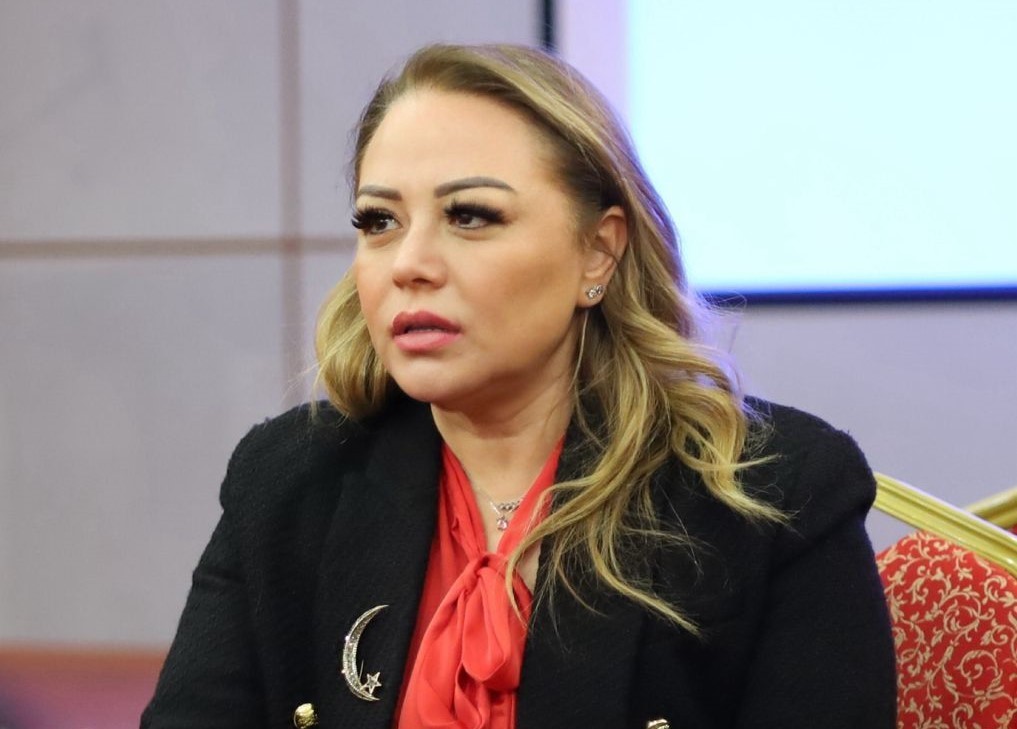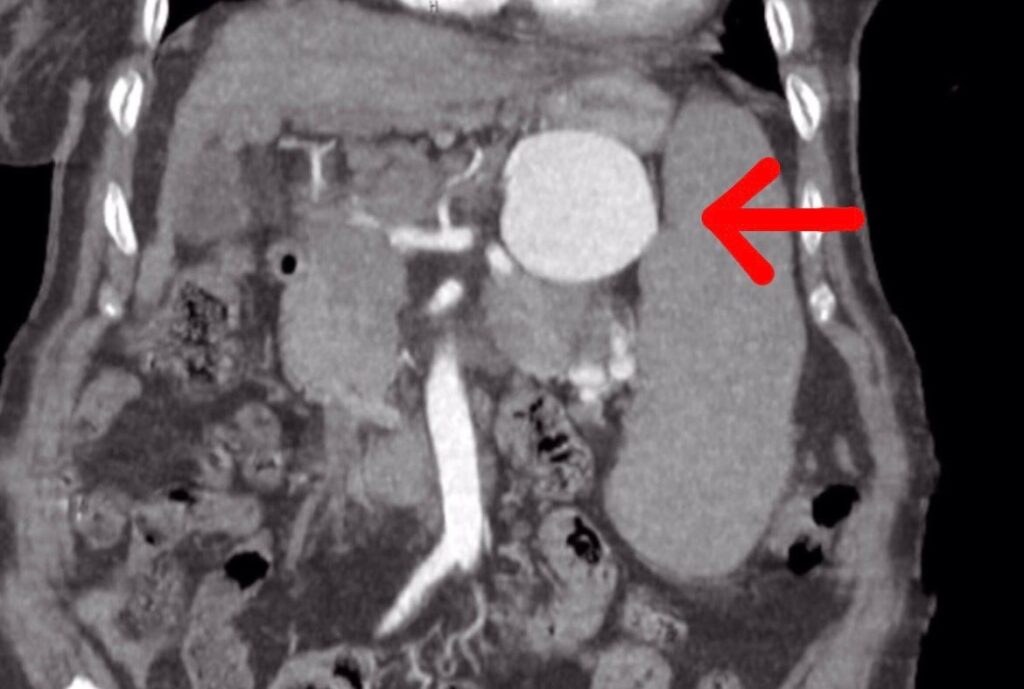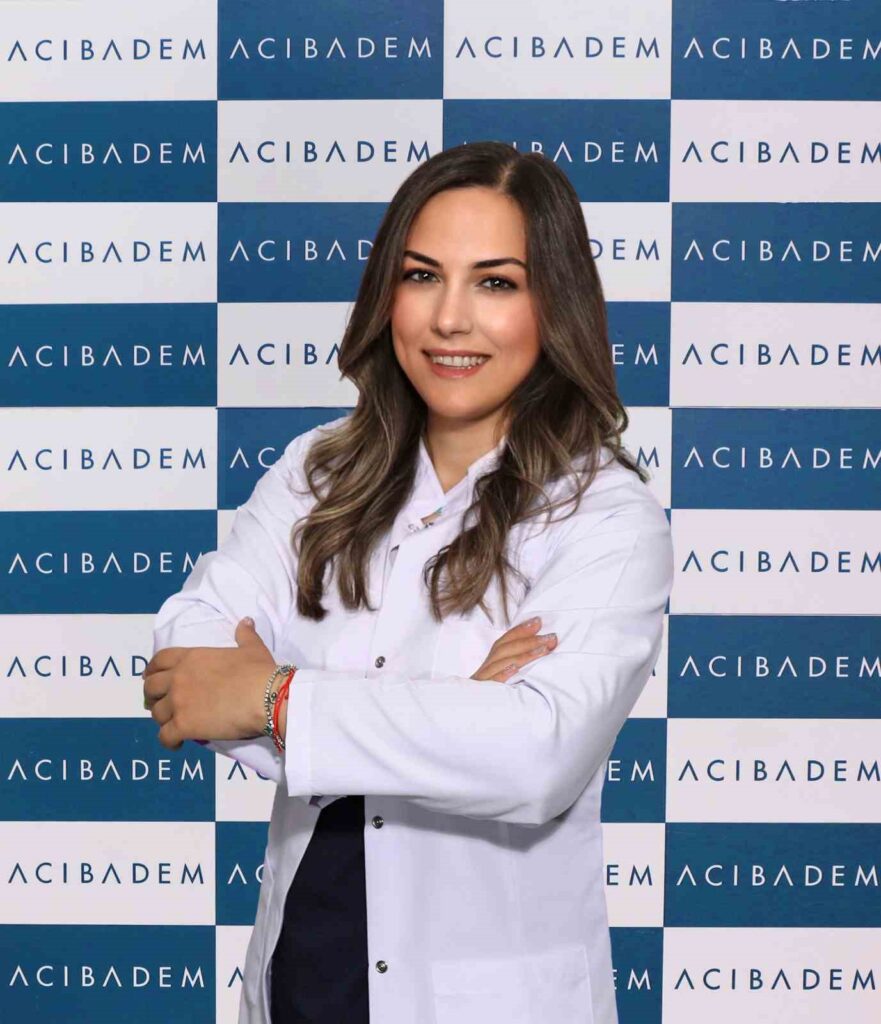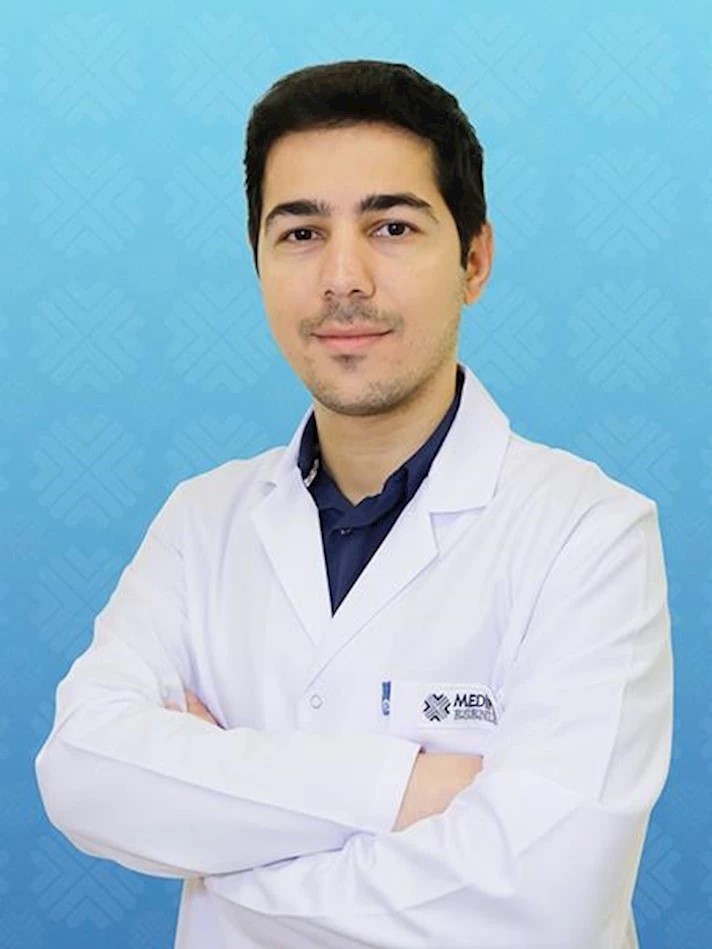Iron deficiency is an important public health issue.
In a press conference held as part of the 50th National Hematology Congress organized by the Turkish Hematology Society (THD), Prof. Dr. Muhlis Cem Ar, President of the Turkish Hematology Society, spoke about the issue of anemia in the elderly, mentioning the need for colonoscopy or …

At the press conference held as part of the 50th National Hematology Congress organized by the Turkish Hematology Society (THD), the President of the THD, Prof. Dr. Muhlis Cem Ar, emphasized the necessity of performing colonoscopy or endoscopy in cases of anemia seen in the elderly. Ar stated, “In elderly patients with coronary artery disease or vascular occlusion, anticoagulants are used. A hidden side effect of these anticoagulants is micro-bleeding. We need to be vigilant about this; sometimes we try to explain the situation based on the use of aspirin or blood thinners if there are no changes in the patient, especially weight loss, loss of appetite, or changes in bowel habits. After a certain age, it is essential to perform a colonoscopy or endoscopy to investigate, as the likelihood of detecting cancers related to the digestive system increases.”
Prof. Dr. Şule Ünal Cangül, the Vice President of THD, also pointed out that anemia due to iron deficiency is a significant public health issue and stressed the dangers it poses to pregnant women. Cangül stated, “In pregnant women with iron deficiency, not only does the mother remain anemic, but the baby is also faced with iron deficiency issues during the first two years of life. Since the baby uses the mother’s iron stores, if the mother is iron deficient, the baby will be born with iron deficiency as well.”
The 50th National Hematology Congress, organized by the Turkish Hematology Society, took place in a hotel located in the Serik district of Antalya. The congress, which is the most significant organization in the field of hematology, began with two separate training programs: “Practical Flow Cytometer Course with Cases” and “Erik Frank-Orhan Ulutin Hemostasis Laboratory Course.” The congress, which took place from October 29 to November 2, 2024, included a total of 43 scientific sessions, including 10 oral presentations and 5 controversial poster sessions, along with 12 satellite symposiums.
“There are new classifications of blood cancers”
During the press conference held on the last day of the congress; Prof. Dr. Muhlis Cem Ar, Prof. Dr. Şule Ünal Cangül, Prof. Dr. Özgür Mehtap, the General Secretary of THD, and Prof. Dr. Emin Kaya, a member of the THD Board of Directors, made statements about hematology and their fields of study. Prof. Dr. Muhlis Cem Ar highlighted their pride in organizing the congress for the 50th time, coinciding with the Republic Day, and stated, “Since our congress coincided with October 29, we had planned it to include that date as well. As in every year, there was an extremely intense scientific program this year. A considerable number of scientific research submissions were sent to our congress this year. The referees had a hard time evaluating and selecting. However, there were 10 oral sessions, nearly 60 presentations were presented orally and discussed. Approximately the same number of controversial posters were also debated in the poster areas. There was a very rich program with scientific sessions and satellite sessions. This year, we held a joint session with the European Hematology Association. One of the trending topics is the new classifications of blood cancers, genetic-based classifications. We no longer act as we did before, with a single type, single diagnosis, and single treatment. Based on these genetic classifications, different drug recommendations arise according to each genetic mutation. It appears that we are entering an era of more targeted, personalized treatments. In this context, we dedicated our session with the European Hematology Association to acute myeloid leukemia and MDS, and we discussed these topics. It was a highly productive meeting.”
“Pregnant women with iron deficiency do not remain anemic alone”
In her talk titled “Why is Iron Deficiency Anemia Important?” Prof. Dr. Şule Ünal Cangül indicated that anemia means a lack of blood and expressed that the iron deficiency seen in many citizens in Turkey results from anemia and Mediterranean anemia. Emphasizing that both diseases are public health issues, Cangül stated, “A public health issue means if a problem affects more than 5% of a population, we refer to it as a public health issue. Iron deficiency is, from this perspective, a public health issue. Because 40% of pregnant women, 30% of women of reproductive age, and 40% of children have iron deficiency. The frequent occurrence of a problem and its significant consequences make it important. In pregnant women with iron deficiency, not only does the mother remain anemic, but the baby also faces iron deficiency issues during the first two years of life. The baby will be born with iron deficiency because it uses the mother’s stores, and if the mother’s iron is deficient, the baby will also be born deficient. Moreover, the mother’s iron deficiency affects birth complications like preterm birth, low birth weight, and other issues during pregnancy. Therefore, we need to prevent iron deficiency in this regard, and we need to take precautions in pregnant women,” she stated.
“If academic success is low in children, we should consider iron deficiency”
Prof. Dr. Şule Ünal Cangül also emphasized that iron deficiency can have significant consequences in infants and children, stating: “Iron deficiency in infancy has extremely important consequences. We want our children to sit, walk, and talk on time. In fact, we are happy if it happens early. What happens in babies with iron deficiency? They may experience delays in speech, developmental milestones, and may struggle to achieve what other children have accomplished. When there are delays in developmental milestones during infancy, we need to consider iron deficiency. If a child’s academic success is low, we should also think about iron deficiency. Children with sleep problems, irritable children, all of these can be small signs of iron deficiency. Furthermore, iron deficiency also affects neurological functions. It’s not just related to anemia; iron has both neurological and immunological extra functions. A child with iron deficiency experiences infections more frequently. Thus, we often hear complaints from families about their children who start preschool having frequent infections. These are not severe infections, but they can lead to mild to moderate infections occurring slightly more often. A child with an infection may not be able to feed properly, leading to a cycle of illness due to iron deficiency. Therefore, we need to check if children have developed iron deficiency at certain points.”
“Infancy and adolescence are periods where iron production should be increased”
Prof. Dr. Şule Ünal Cangül expressed the main reasons for iron deficiency as follows: “If we look at it from the perspective of every age group, the first reason is insufficient intake, especially nutritional deficiencies, improper nutrition, and malnutrition. The second most common reason is bleeding. In adults, bleeding is more prominent. In children, nutritional deficiencies are more prevalent. We see iron deficiency especially in children during the first two years and later in adolescence. Because when we grow rapidly, we need to produce 70 cc of blood for every kilogram. Thus, we need iron. Infancy and adolescence are periods of rapid growth where iron production needs to be increased. There can also be a predisposition to iron deficiency in individuals with absorption problems in the intestines. Therefore, to prevent this, several projects are being carried out in Turkey. One of them is the “Iron Like Turkey” project carried out by our Ministry of Health. Imagine a baby born weighing 3 kilos, reaching 10 kilos by the age of 1. None of us gain three times our weight within a year in our lives. Therefore, it is a very rapid growth period. A project was launched in line with the recommendations of the World Health Organization, called the “Iron Like Turkey” project. Through this, iron deficiency rates, which were around 30% during this period, have been reduced to around 7%. Of course, it could not be completely eliminated. Why? Because this is a preventive dose, both very low doses are given, and the family’s adherence to medication may not be sufficient. Another prophylaxis we are doing, that is, administering iron for preventive purposes, occurs during pregnancy, particularly under the management of obstetricians and family physicians.”
“About 25% of deaths are related to thrombosis”
Prof. Dr. Özgür Mehtap, speaking about vascular occlusion, defined thrombosis as the formation of a clot in a vessel, artery, or vein in the body, stating that one in four deaths worldwide is due to vascular occlusion. Mehtap said, “About 25% of deaths are related to thrombosis, that is, related to clots. This can be due to many underlying causes. Particularly, cancers, immobility, and some genetic conditions can be involved. There can be cases of familial predisposition to thrombosis. In these situations, thrombosis does not always occur, but for example, we encounter factors that may increase the risk. For instance, when an illness or surgery intervenes, these types of clots can occur, leading to life-threatening conditions. These clots in the veins, especially in the leg veins, can lead to sudden deaths by traveling to the lungs, causing a condition known as pulmonary embolism. Additionally, arterial clots can lead to strokes and heart attacks. There are many underlying causes.” He emphasized that the most important way to reduce deaths caused by vascular occlusion is to increase physical activity and also noted the need to pay attention to nutrition and avoid fatty foods.
“Blood cancers like leukemia can be detected quickly”
Prof. Dr. Emin Kaya, in his talk titled “Cancer Diagnosis in Seconds with Artificial Intelligence,” noted that in the field of hematology, which covers a wide range of diseases from cancer to anemia, applications of artificial intelligence are groundbreaking in 2024. Kaya stated, “Thanks to innovative artificial intelligence platforms, cancer cells are detected in seconds, access to clinical trials is accelerated, and treatment processes for patients are personalized. AI-supported microscopic analyses enable detailed and rapid examination of blood cells. In these analyses, structural differences in cells are identified in seconds through image processing algorithms, allowing for the rapid detection of blood cancers like leukemia. Early diagnosis significantly increases the chances of treatment for patients, especially in rapidly proliferating cancers like leukemia. These AI-supported systems provide great precision in distinguishing abnormal cells in blood samples, surpassing traditional methods with an accuracy rate of up to 90%. This allows doctors to make quick decisions and start treatment at the earliest stage, offering life-saving intervention opportunities for hundreds of patients.”
He also touched upon the “Car T Cell” treatment approach, saying, “Here, especially specific targeted cells are developed, and a different plan is required for each patient. Here too, we can create faster and more suitable targeted treatments with artificial intelligence.”
The Turkish Hematology Society is working on artificial intelligence
In his closing remarks at the press conference, the President of the Turkish Hematology Society, Prof. Dr. Muhlis Cem Ar, shared the program they are working on in the field of artificial intelligence. Ar stated, “As an association, we have 16 scientific subcommittees. These committees consist of researchers and physicians who focus on different areas of hematology. We have established the 17th committee as artificial intelligence. Here, we are developing national projects that integrate artificial intelligence into areas such as diagnosis, identifying the correct guidelines, and more. We have another project in this regard. Actually, we were going to launch it at this congress, but it will be postponed to the next congress due to incomplete testing. We are creating a program that is a software for diagnosis and treatment, which also utilizes artificial intelligence. The initial framework has been completed. The part that guides which disease group the incoming patient should be directed to from a hematological perspective has been completed. Now, scientific subcommittees will work on developing specific algorithms for each disease group. Thus, when a patient arrives, it will initially guide them to a diagnosis, then provide guidance on how a risk classification will be made, and when that risk is determined, which treatment is appropriate, and whether that treatment is covered by the Health Application Communiqué (SUT) or not? Or is it accessible in Turkey or not? What is available worldwide? Is there a clinical study ongoing in Turkey in this regard? We aim to create a program that can be used in a very comprehensive way.”
“A hidden side effect of anticoagulants is microbleeding”
Responding to a question about what anemia means in the elderly, Prof. Dr. Muhlis Cem Ar expressed that in cases of anemia seen in individuals over a certain age, a colonoscopy or endoscopy should be performed. Prof. Dr. Ar stated, “In elderly patients, those with coronary artery disease or vascular occlusion use anticoagulants. They do not see visible blood, but there may be hidden blood, which we can refer to as occult blood in the stool. We need to be vigilant about this; sometimes we try to explain the situation based on the use of aspirin or blood thinners if there are no changes in the patient, especially weight loss, loss of appetite, or changes in bowel habits. Particularly after a certain age, it is essential to perform a colonoscopy or endoscopy to investigate, as the likelihood of detecting cancers related to the digestive system increases.”







